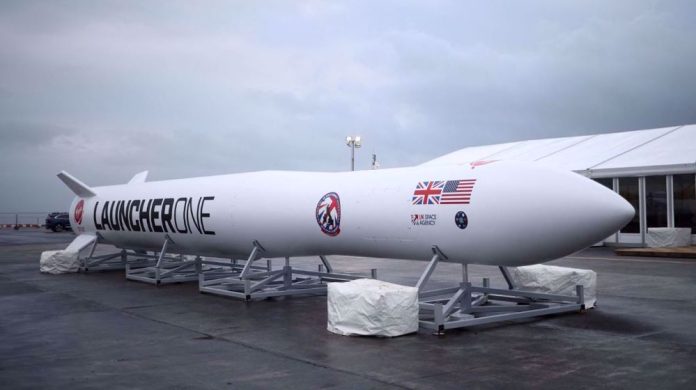After a LauncherOne rocket missed the intended orbit, the UK’s attempt to become the first nation in Western Europe to launch satellites from a home base has failed.
At 2202 GMT on Monday, Virgin Orbit, owned by British billionaire Richard Branson, planned to launch nine satellites using a 21-meter LauncherOne rocket attached to a modified Boeing 747. The rocket would be launched from a new spaceport in Newquay, Cornwall, in the southwest of England.
On Tuesday, representatives of Virgin Orbit made the announcement that the mission had come to an end as a result of an unidentified error in the firing of the rocket’s second-stage engine.
The two-stage rocket, which was attached to a Boeing 747 and launched from Cornwall, ignited as planned at a height of 35,000 feet above the Atlantic Ocean, south of Ireland, around 23:15 GMT. However, Virgin Orbit stated, “We appear to have an anomaly that has prevented us from reaching orbit” in a series of tweets just before the rocket was scheduled to enter orbit and discharge its nine satellites.
There were nine small satellites aboard the rocket, including several payloads for the military and security.
One program linked to the US Naval Research Lab and another to the British Defense Science and Technology Laboratory (Dstl) were among the military payloads.
In-Space Missions Ltd., based in Hampshire, designed two cereal-box-sized Prometheus-2 CubeSats for the British government to operate in low Earth orbit as a test platform for imaging and monitoring radio signals, including GPS. These CubeSats were designed by Airbus Defence and Space and the US National Reconnaissance Office (NRO).
To test ideas in support of the British Ministry of Defence’s ISTARI program for future space-based intelligence and surveillance, separate equipment was installed on the two.
A coordinated ionospheric reconstruction CubeSat experiment was also being worked on by the US Navy and the Dstl as part of the Circe program. It was supposed to be put into orbit on LauncherOne. The ionosphere was the focus of the collaborative space mission, which looked into how it affected GPS, communications, and sensing technology.
The rocket’s Amber 1 satellite, a third defense-related security satellite program, was made to gather maritime intelligence.
It was planned that the launch of Virgin Orbit would be the first of at least 20 such payloads that would provide maritime domain awareness.
The mission’s failure is seen as a significant setback for Britain’s military space programs and as evidence of the country’s inability to successfully launch satellites. The United Kingdom would have been one of only nine nations able to send spacecraft into Earth’s orbit if the mission had been successful.
Also Read: Emergency in Britain, a country stalled by waves of strike
Before the launch, Spaceport Cornwall chief Melissa Thorpe told BBC television, “Joining that really exclusive club of launch nations is so important because it gives us our own access to space… that we’ve never had before here in the UK.”
The UK Space Agency’s director of commercial spaceflight, Matt Archer, called the mission’s failure “disappointing.”
Meanwhile, anti-war activists were outraged by the British government’s utter failure to address the country’s cost-of-living crisis and social injustices, which have prompted nationwide protests and strikes lasting months.
According to Kate Hudson, general secretary of the Campaign for Nuclear Disarmament (CND), “Space is the new frontier for military escalation and spending with no real public scrutiny or accountability.” This new arms race costs billions of pounds, which could be invested in addressing the current cost of living crisis.”
“Space arms race which will inevitably lead to greater risk of instability and conflict,” Drone Wars UK director Chris Cole said.
The Outer Space Treaty, which was ratified in 1967 and recognizes space as a “global commons” to be used for peaceful purposes to the benefit of all nations and humanity, is argued by critics rather than the British government expanding its military presence into space. The goal of the multilateral treaty, which was drafted and negotiated under UN auspices and serves as the foundation for international space law, is to stop military and commercial space exploitation and the harm it would cause.
sources: euronews.com













